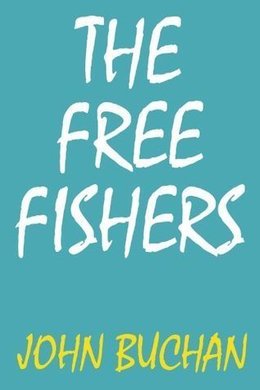
-
EPUB 326 KB
-
Kindle 425 KB
-
Support epubBooks by making a small $2.99 PayPal donation purchase.
This work is available for countries where copyright is Life+70 or less.
Description
Set in the bleak Yorkshire hamlet of Hungrygrain, this is a stirring tale of treason and romance. Anthony Lammas, minister and Professor of Logic at St Andrews University finds himself entangled in a web of intrigue that threatens the country. His boyhood allegiance to a brotherhood of deep-sea fishermen involves him and his handsome ex-pupil with a beautiful but dangerous woman.
389 pages with a reading time of ~6 hours (97300 words), and first published in 1934. This DRM-Free edition published by epubBooks, 2015.
Community Reviews
There are currently no other reviews for this book.
Excerpt
In Which a Young Man is Afraid of His Youth
Mr Anthony Lammas, whose long legs had been covering ground at the rate of five miles an hour, slackened his pace, for he felt the need of ordering a mind which for some hours had been dancing widdershins. For one thing the night had darkened, since the moon had set, and the coast track which he followed craved wary walking. But it was the clear dark of a northern April, when, though the details are blurred, the large masses of the landscape are apprehended. He was still aware of little headlands descending to a shadowy gulf which was the Firth. Far out the brazier on the May was burning with a steady glow, like some low-swung planet shaming with its ardour the cold stars. He sniffed the sharp clean scent of the whins above the salt; he could almost detect the brightness of their flowering. They should have been thyme, he thought, thyme and arbutus and tamarisk clothing the capes of the Sicilian sea, for this was a night of Theocritus….
Theocritus! What had he to do with Theocritus? It was highly necessary to come to terms with this mood into which he had fallen.
For Mr Lammas, a licensed minister of the Kirk and a professor in the University of St Andrews, had just come from keeping strange company. Three years ago, through the good offices of his patron and friend, Lord Snowdoun, he had been appointed to the Chair of Logic and Rhetoric, with emoluments which, with diet money and kain-hens, reached the sum of £309 a year, a fortune for a provident bachelor. His father, merchant and boat-builder in the town of Dysart, had left him also a small patrimony, so that he was in no way cumbered with material cares. His boyhood had been crowded with vagrant ambitions. At the burgh school he had hankered after the sea; later, the guns in France had drawn him to a soldier’s life, and he had got as far as Burntisland before a scandalised parent reclaimed him. Then scholarship had laid its spell on him. He had stridden to the top of his Arts classes in St Andrews, and at Edinburgh had been well thought of as a theologian. His purpose then was the lettered life, and he had hopes of the college living of Tweedsmuir, far off in the southern moorlands, where he might cultivate the Muses and win some such repute as that of Mr Beattie at Aberdeen.
But Lord Snowdoun had shown him the way to better things, for to be a professor at twenty-five was to have a vantage-ground for loftier ascents. In the Logic part of his duties he had little interest, contenting himself with an exposition of Mr Reid’s Inquiry and some perfunctory lectures on Descartes, but in the Rhetoric classes, which began after Candlemas, his soul expanded, and he had made himself a name for eloquence. Also he had discovered an aptitude for affairs, and was already entrusted with the heavy end of college business. A year ago he had been appointed Questor, a post which carried the management of the small academic revenues. He stood well with his colleagues, well with the students, and behind him was Lord Snowdoun, that potent manager of Scotland. Some day he would be Principal, when he would rival the fame of old Tullidelph, and meantime as a writer he would win repute far beyond the narrow shores of Fife. Had he not in his bureau a manuscript treatise on the relations of art and morals which, when he re-read it, astounded him by its acumen and wit, and a manuscript poem on the doings of Cardinal Beatoun which he could not honestly deem inferior to the belauded verse of Mr Walter Scott!
So far the path of ambition, in which for a man of twenty-eight he had made notable progress. Neat in person, a little precise in manner, his mouth primmed to a becoming gravity, his hair brushed back from his forehead to reveal a lofty brow, Mr Lammas was the very pattern of a dignitary in the making…. And yet an hour ago he had been drinking toddy with shaggy seafarers, and joining lustily in the chorus of “Cocky Bendy,” and the tune to which his long legs had been marching was “Dunbarton’s Drums.” He was still whistling it:
"Dunbarton's drums are bonnie O--
I'll leave a' my friends and my daddie O--
I'll bide nae mair at hame, but I'll follow wi' the drum,
And whenever it beats I'll be ready O."
This was a pretty business for a minister of the Kirk, the Questor of St Andrews, and a professor of divine philosophy.
